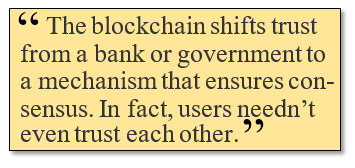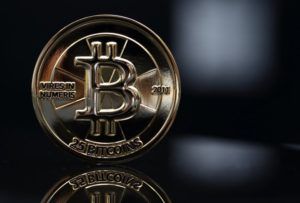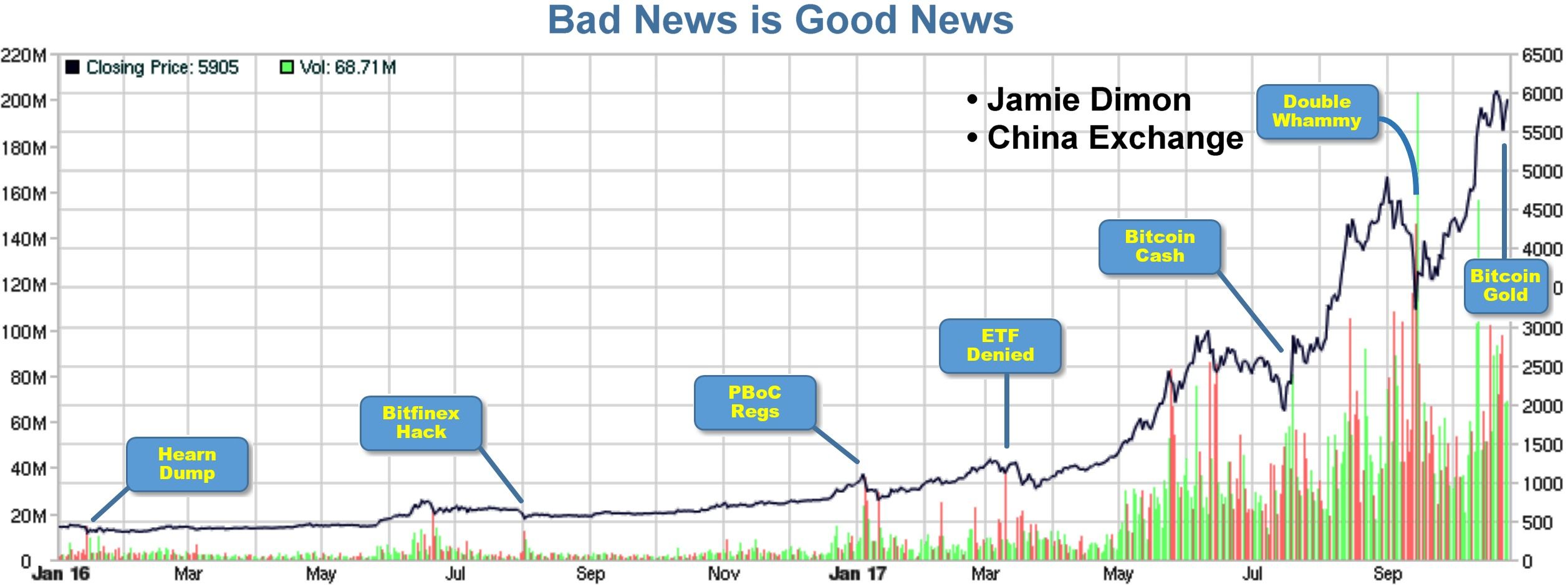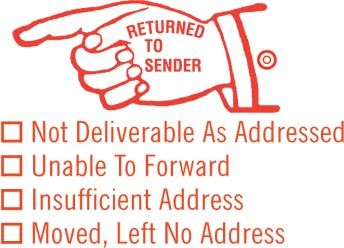Today, editors at Quora asked me to answer a seemingly simple question:
“Is cryptocurrency good for government?”
This is a terrific question, and one that I write about frequently. The question gives me a chance to summarize the key facets of widely mistaken fears. But, here, in the Lifeboat Blog, there is room to elaborate a bit.
In the first phase of cryptocurrency adoption (we are in the midst of this now), there is an abundance of skepticism: Misunderstanding, mistrust, historical comparisons that aren’t comparable, government bans & regulatory proposals—and a lot of questions about intrinsic value, lack of a redemption guaranty, risky open source platforms, tax treatment, etc, etc.
Out of the gate, few individuals and governments paid attention to Bitcoin. That was when it traded under $100. It was complicated to understand, and it seemed to be nothing more than gaming money coveted by nerds and geeks. But with each wave of adoption, or the crash of a major exchange, or the shutdown of Silk Road, public interest has piqued. And, of course, the price of Bitcoin has shot up from nothing to almost $20,000 in the past few years.
It’s natural that governments watch developments closely, and sometimes weigh in with guidance, licensing or regulations. But consider the underlying concerns: Why should governments care about this activity? Is cryptocurrency good for government?
Very often, we hear of government restrictions or “bans” on trading bitcoin. The justification typically hinges on a belief that cryptocurrency leads to bad things:
- Leads to widespread tax evasion
- Facilitates criminal activity (because of anonymity)
- Causes citizens to lose faith in their own government
- Interferes with a nation’s ability to control its own monetary policy
- Reduces liquidity of (government-backed) national currency
- Causes a deflationary economy. People will delay spending and stop investing
The first three concerns are patently false and the last three concerns raise an interesting question: Might it benefit a government to surrender control over its own monetary policy? We’ll explore this, below…
Let’s look at each of these fears. I won’t try to analyze or defend each statement below. You can find the justifications throughout Lifeboat.
1. Gradually, governments are coming to recognize that the first three concerns are false. If cryptocurrency gains widespread traction as a payment instrument—or even as cash itself—governments are not weakened in their ability to tax, spend, or enforce tax collection. This myth arises from a lack of education, experience and familiarity.
2. We have seen some spectacular news stories involving very serious criminal activity that accepts bitcoin. In each case, the bad guys were caught—and they were caught because they foolishly accepted bitcoin.
In fact, cash is a far better tool of crime than cryptocurrency. Pre-paid debit cards are even worse.
Bitcoin is not anonymous. It is what cryptographers call pseudo-anonymous. I call it “a fool’s anonymity”! Although Bitcoin allows users to create anonymous wallets, anyone selling drugs or committing a notorious deed can be tracked. A million armchair analysts (anyone who uses and follows Bitcoin), can follow the money trail—through VPNs and mixers—all the way until something is spent in the real world. At some point, someone buys a tennis ball or gets braces for their kid, or buys a book at Amazon. That’s when it all unwinds.
3. Far from cryptocurrency undermining trust in government, it does just the opposite. It demonstrates to citizens that the government shares an obligation to balance its books, just like every individual, corporation, NGO, city or state.

In effect, governments must raise the dollars that they intend to spend. In an emergency, they can borrow, of course, but only if they can find creditors that truly believe in their ability to repay the debt.
This trust yields phenomenal results:
- Creditors no longer wonder if a nation will attempt to turn on the printing press (like Argentina, Venezuela, Sudan, Zimbabwe, Greece or Germany between the wars).
- Citizens no longer fear that their transient elected officials will constantly raise the debt ceiling (This is a euphemism for “hoisting debt on future generations”, and destroying credibility with debtors at the same time).
- Redistribution of wealth through wacky tax laws is still possible, but it is more likely to require the consent of taxpayers, because suddenly, governments can’t hide expenses behind the opaque barrier of a printing press, nor can they use inflation as a mechanism of social policy. Instead, they must create clear, 2-entry line items for each social welfare expense: Who gets the money? —and Where does it come from?
4, 5 and 6: Now, we arrive at the least understood concerns…
#4 and #5 are true. But as we discuss in #3, loss of control over monetary policy is a very different thing than losing control over fiscal policy.
It took decades to discover that decoupling a country from its delivery service and telephone companies resulted in a remarkable boost to industries, services and productivity. Likewise, decoupling a nation from its currency is a really, really good thing. No one can play games, trust is restored. Our kids aren’t born into debt of the nations that purchase our government bonds.
#6 is perhaps the most difficult to accept. Some economists still insist that a small amount of inflation is critical to getting people to spend and invest. But a growing number of experts are discovering that this just isn’t so. Deflation is often associated with unemployment, war, recession and a loss of liquidity and investment. In fact, deflation can be triggered by these things, but when it is the result of a trusted and capped-but-divisible money supply, it doesn’t lead to any of these things.
The concern about people not spending is a linguistic trick. Another way to say the same thing is that a capped money supply encourages people to save for big expenses and for retirement. Since when is that a bad thing?
I have been answering questions about Bitcoin and cryptocurrency since Satoshi was at the helm. Talk to me. Ask about it! Then, think for yourself. Stay engaged.
Philip Raymond co-chairs CRYPSA, publishes A Wild Duck and hosts the New York Bitcoin Event. He is keynote speaker at the Cryptocurrency Expo in India this month. Click Here to inquire about a presentation or consulting engagement.

 Representative image.
Representative image.
 At times like this, you must make a choice: If you can’t afford to stay in the market and risk a bigger drop, then cash out and live with it. But if you believe in crypto and the potential for a digital future that dis-intermediates your earning, spending and savings, then this drop in dollar value presents opportunity.
At times like this, you must make a choice: If you can’t afford to stay in the market and risk a bigger drop, then cash out and live with it. But if you believe in crypto and the potential for a digital future that dis-intermediates your earning, spending and savings, then this drop in dollar value presents opportunity.


 One reader suggests the problem will be solved by the recent boom in shale fracking and renewable, non-polluting energy. He points out that crypto mining may even drive a market for distributed, clean electric production.
One reader suggests the problem will be solved by the recent boom in shale fracking and renewable, non-polluting energy. He points out that crypto mining may even drive a market for distributed, clean electric production.





 When I hear of such “bans” (or learn about Jamie Dimon claiming that Bitcoin is a ‘pyramid scheme’ before having all the facts), I become confused and excited…
When I hear of such “bans” (or learn about Jamie Dimon claiming that Bitcoin is a ‘pyramid scheme’ before having all the facts), I become confused and excited…


 Bitcoin addresses are currently generated via an algorithm called RIPE-MD160. This further limits the number of possible wallet addresses to 2160 = 1.4×1048). But this reduction is caught when sending, because the checksum uses the same algorithm to validate against a properly formed address.
Bitcoin addresses are currently generated via an algorithm called RIPE-MD160. This further limits the number of possible wallet addresses to 2160 = 1.4×1048). But this reduction is caught when sending, because the checksum uses the same algorithm to validate against a properly formed address.